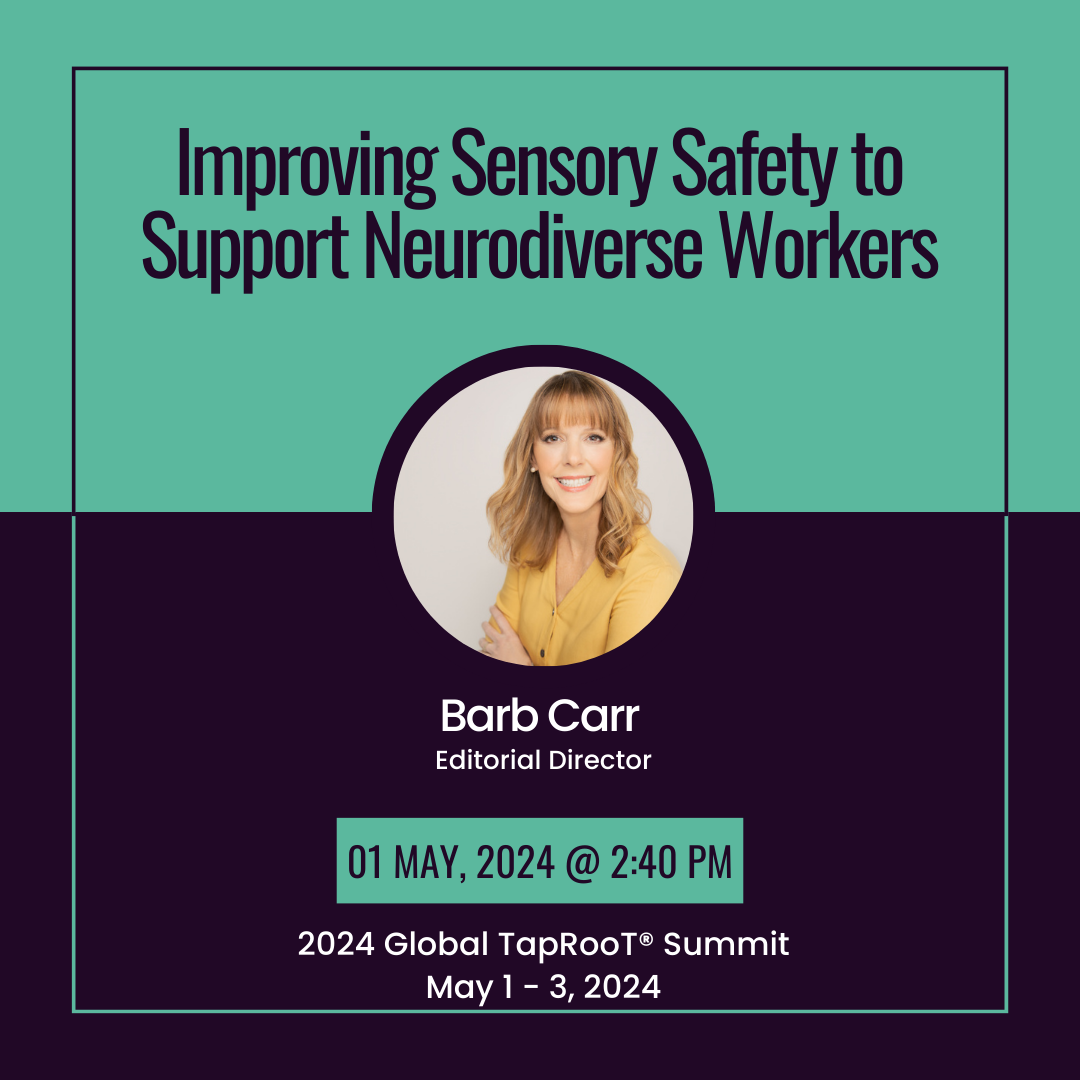Help your Neurodiverse Workers Excel

Improving Sensory Safety to Support Neurodiverse Workers
Up to 20% of workers are estimated to be neurodiverse, so it’s worthwhile to learn how to recognize the characteristics of the neurodivergent brain. Understanding leads to better support, which helps neurodiverse workers thrive and excel at your company.
Those with a neurodivergent brain simply think differently than those with neurotypical brains. This type of brain is not “abnormal” – it’s simply different. However, since neurotypical brains are more common, most work systems are set up for neurotypicals to be successful and leave those who are neurodiverse struggling unnecessarily.
Improving sensory safety for these workers is just one way to be supportive. Workers take in important sensory information to do their jobs all day. Neurodivergent workers process sensory information differently than neurotypicals, and special attention to this area can dramatically improve performance in these workers.
Join us at the 2024 Global TapRooT® Summit May 1 – 3 to learn more. This session is scheduled for Wednesday, May 1, 2024, at 2:40 pm. (Best Practice Session 3).
Tip: schedule your return flights home after the Summit ends on Friday at noon. You won’t want to miss everything the Summit has to offer.
Attend the Summit
The 2024 Global TapRooT® Summit will be held May 1-3, 2024 at the Horseshoe Bay Resort near Austin, Texas.
This session is in the Psychology of Improvement Track, but you can customize your schedule and attend it when you sign up for any of the seven tracks.
View the seven Best Practice Tracks at the 2024 Global Summit.
Get more Summit information by CLICKING HERE.
See the seven Keynote Speakers topics.

Download the eight-page Summit Brochure.
View the complete Summit schedule.
Learn about the 11 special pre-Summit Courses being held on April 29-30 (just prior to the Summit). Join me for the Effective Interviewing and Evidence Collection pre-Summit course!
SAVE when you attend both the Summit and a pre-Summit Course. Save even more when you bring a team (up to $800 per person).

REGISTER NOW for a pre-Summit Course and the Summit.



